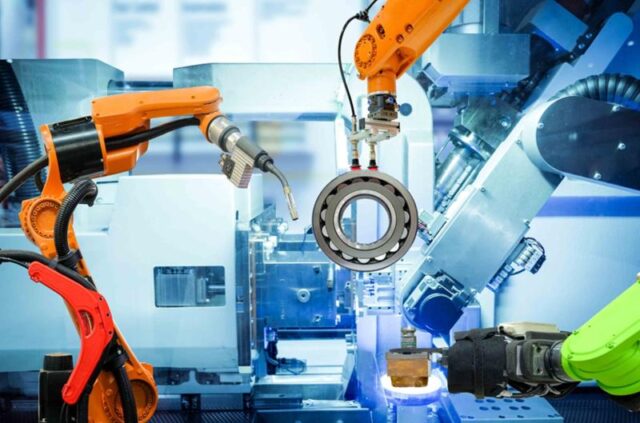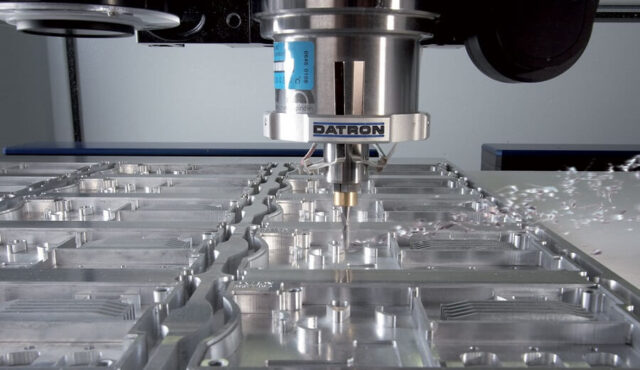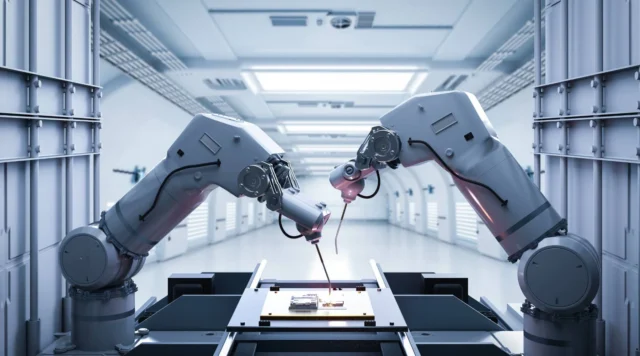
Precision is a game-changer when it comes to manufacturing. While industries like chemicals, pharmaceuticals, and electronics have always focused on precision, it is also a necessity in other segments today. Accuracy in measurements and consistency in techniques can improve quality, accelerate processes, enhance safety, and reduce production costs.
The American manufacturing market is forecasted to grow by 3.02% (2023-2028), with a projection of a market volume of a massive US$3.59tn in 2028. That translates into a huge opportunity for the industrial sector but also means stiff competition. Going above and beyond with quality is the only way to beat the competition and stay ahead in the game.
While there are no shortcuts to quality, precision in measurements can make all the difference. From ensuring consistency in products to lowering supply chain costs, it can help your business in several ways. Let us explain a few actionable ways to elevate your business through precision in the factory.
1. Consider the Materials

When it comes to precision in manufacturing, material type, and quality are the most crucial aspects. Some materials have tighter tolerances, making them apt for more complex designs. Consider the type of material that aligns with your precision needs and expectations. Opting for the right match ensures that the end product meets the necessary requirements.
For example, materials like stainless steel, structural steel, titanium, copper alloy, and aluminum alloy parts are apt for industries such as automobiles and aeronautics. These products require a high level of accuracy and complexity, making it vital to choose the materials with the right specifications.
2. Go the Extra Mile With Measurement Accuracy
Weights and measurements are integral elements of the production process, regardless of the industry. Products need to be weighed at all stages of the production cycle, but it takes more than putting them on weighing scales. The slightest deviations in the weight of the raw material can affect the quality of the end product. You may end up paying more for distribution or storage if you go wrong with weighing packages and containers.
Investing in a pallet scale is a good option as you can use them to weigh a variety of items, from crates to food, general goods, and livestock before storage. These scales are popular for their reliability and efficiency, making them ideal for precision-focused manufacturers.
Scales Galore notes that accuracy in weights is essential at the storage and transport stage. Manufacturers need to ensure that the weight of palletized goods is well under the safety weight and working limit. Going over the safety limit can cause mishaps, which is the last thing you want to deal with as a factory owner.
3. Prioritize Regular Maintenance and Calibration

Statistics show that 76% of manufacturing companies worldwide prioritized preventive maintenance in 2020. Regular maintenance does more than prevent breakdowns, minimize downtimes, and reduce expensive repairs. Most importantly, it ensures precision by keeping manufacturing machines functioning at peak efficiency.
Regular maintenance and calibration in a factory are about keeping the industrial parts clean and calibrating the machines. The process also involves checking and replacing worn parts to ensure accuracy. Integrate these checks into your workflow to avoid missing out on them.
4. Invest in Continuous Employee Training
Manufacturing precision is not just about the quality of raw materials and the condition of industrial machines. While these aspects matter, the skills and knowledge of the workforce are even more crucial. How they handle the machines and materials can have a far-reaching impact on the output. In 2020 alone, manufacturers spent a whopping $26.2 billion on training initiatives for existing employees and new hires.
Continuous training is a game-changer as it helps employees to maintain precision manufacturing. As a business owner, you must implement programs that educate them on the latest manufacturing technologies, techniques, and best practices. Besides training the employees working on the factory floor, you must include warehouse workers in the initiatives. Every worker should know how to use equipment such as the forklift and pallet scale to stay ahead of the precision game.
Providing training opportunities to employees and creating a culture of continuous learning boosts confidence and enhances retention. People are willing to stay when you invest in their skills.
5. Maximizing Efficiency Through Automation and Digitalization

Businesses are constantly seeking innovative ways to streamline their operations and increase productivity. One effective approach that has gained significant traction is the integration of automation and digitalization in the factory environment.
By leveraging advanced technologies and data-driven systems, industrial businesses can achieve unprecedented levels of precision, efficiency, and overall performance. This subheading explores the benefits of embracing automation and digitalization, along with key strategies to implement these technologies effectively.
Automation holds immense potential for transforming industrial processes. Whether it’s robotic arms performing repetitive tasks with unparalleled precision or automated systems managing complex workflows, the introduction of automation can revolutionize production lines.
By minimizing human error and reducing manual intervention, businesses can significantly enhance both quality and efficiency. Automation enables real-time data collection and analysis, providing valuable insights for process optimization, predictive maintenance, and waste reduction.

Digitalization involves the integration of digital technologies and software systems into the factory environment. This allows for the seamless flow of information across departments, facilitating enhanced communication, collaboration, and decision-making.
With the aid of smart sensors, Internet of Things (IoT) devices, and data analytics platforms, businesses can gain real-time visibility into operations, identify bottlenecks, and make data-driven decisions for process improvements. Digitalization enables the implementation of advanced inventory management systems, supply chain optimization, and effective demand forecasting, ensuring a lean and agile operation.
The Bottom Line
Achieving precision in the factory is easier than you imagine. It isn’t only a thing for large enterprises operating expensive and high-tech machines. Even small manufacturers can stay on top of it. You can manufacture flawless products and stay on top of your quality goals without spending a fortune. All you need to do is understand the significance of material quality, weighing accuracy, and employee training.









